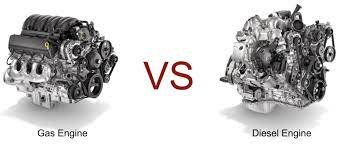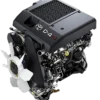Understanding the differences between gasoline and diesel-powered Nissan engines
Deciphering the Divergence: Understanding the differences between gasoline and diesel-powered Nissan engines
In the realm of automotive engineering, the choice between gasoline and diesel engines is a crucial consideration that shapes a vehicle’s performance, efficiency, and overall driving experience. Nissan, a pioneer in automotive innovation, offers a wide array of vehicles powered by both gasoline and diesel engines. Understanding the disparities between these two engine types can empower consumers to make informed decisions when selecting their next Nissan vehicle. Deciphering the Divergence: Understanding the differences between gasoline and diesel-powered Nissan engines.
The Fuel Fundamentals:
Gasoline-Powered Nissan Engines:
Gasoline engines, also known as petrol engines, rely on a combustion process that ignites a mixture of air and gasoline within the engine cylinders. This combustion generates the power necessary to propel the vehicle forward. Nissan’s gasoline engines are revered for their smooth operation, responsive acceleration, and quieter performance compared to their diesel counterparts. Deciphering the Divergence: Understanding the differences between gasoline and diesel-powered Nissan engines.
Diesel-Powered Nissan Engines:
In contrast, diesel engines operate on compression ignition, where the air within the cylinder is compressed to high temperatures, causing the injected diesel fuel to ignite spontaneously. Nissan’s diesel engines are esteemed for their robust torque output, making them well-suited for towing and hauling tasks. Additionally, diesel engines are known for their fuel efficiency, often delivering superior mileage compared to gasoline engines under specific driving conditions. Deciphering the Divergence: Understanding the differences between gasoline and diesel-powered Nissan engines.
Performance and Power Output:
Gasoline Engines:
Nissan’s gasoline engines typically boast higher horsepower ratings compared to their diesel counterparts. This results in brisk acceleration and responsive throttle response, making gasoline-powered Nissan vehicles ideal for urban driving and highway cruising. Furthermore, gasoline engines tend to rev higher, providing a more exhilarating driving experience for enthusiasts. Deciphering the Divergence: Understanding the differences between gasoline and diesel-powered Nissan engines.
Diesel Engines:
While diesel engines may have slightly lower horsepower figures, they compensate with substantial torque output, particularly at lower engine speeds. This translates to robust low-end power delivery, making diesel-powered Nissan vehicles suitable for tasks requiring significant pulling power or navigating challenging terrains. Nissan’s diesel engines excel in delivering ample torque, catering to drivers with towing needs and off-road adventures. Deciphering the Divergence: Understanding the differences between gasoline and diesel-powered Nissan engines.
Fuel Efficiency and Economic Considerations:
Gasoline Engines:
In city driving conditions, gasoline engines typically offer better fuel economy due to the frequent stops and starts that can impede the efficiency of diesel engines. However, during highway cruising, gasoline-powered Nissan vehicles may consume more fuel due to higher engine speeds and increased aerodynamic drag at higher velocities. Deciphering the Divergence: Understanding the differences between gasoline and diesel-powered Nissan engines.
Diesel Engines:
Diesel engines shine in terms of fuel efficiency during highway journeys, where their low-end torque and efficient combustion process enable them to maintain steady speeds with minimal fuel consumption. Nissan’s diesel-powered vehicles are favored by long-distance travelers and those seeking optimal fuel economy for extended trips. Deciphering the Divergence: Understanding the differences between gasoline and diesel-powered Nissan engines.
Environmental Impact Assessment:
Gasoline Engines:
Despite advancements in emission reduction technologies, modern gasoline engines still emit carbon dioxide (CO2) and other greenhouse gases during combustion. Additionally, gasoline engines may produce nitrogen oxides (NOx) and particulate matter, albeit in lower quantities compared to older engine designs. Deciphering the Divergence: Understanding the differences between gasoline and diesel-powered Nissan engines.
Diesel Engines:
Diesel engines have historically been associated with higher emissions of nitrogen oxides (NOx) and particulate matter, contributing to air pollution and environmental concerns. However, advancements in exhaust treatment technologies, such as selective catalytic reduction (SCR) and diesel particulate filters (DPF), have significantly reduced the environmental impact of modern diesel engines, making them cleaner and more eco-friendly. Deciphering the Divergence: Understanding the differences between gasoline and diesel-powered Nissan engines.
Conclusion:
In conclusion, both gasoline and diesel-powered Nissan engines offer unique advantages and cater to different driving preferences and requirements. Gasoline engines excel in delivering refined performance, responsive acceleration, and versatility across various driving conditions. Conversely, diesel engines prioritize torque output, fuel efficiency, and towing capability, making them indispensable for demanding tasks and long-distance travel. Deciphering the Divergence: Understanding the differences between gasoline and diesel-powered Nissan engines.
When choosing between gasoline and diesel-powered Nissan vehicles, it’s essential to consider factors such as intended usage, driving habits, and environmental concerns. By understanding the disparities between these engine types, consumers can make informed decisions that align with their needs and preferences, ensuring a satisfying driving experience behind the wheel of their Nissan vehicle.








